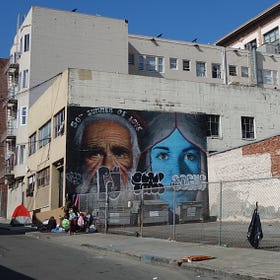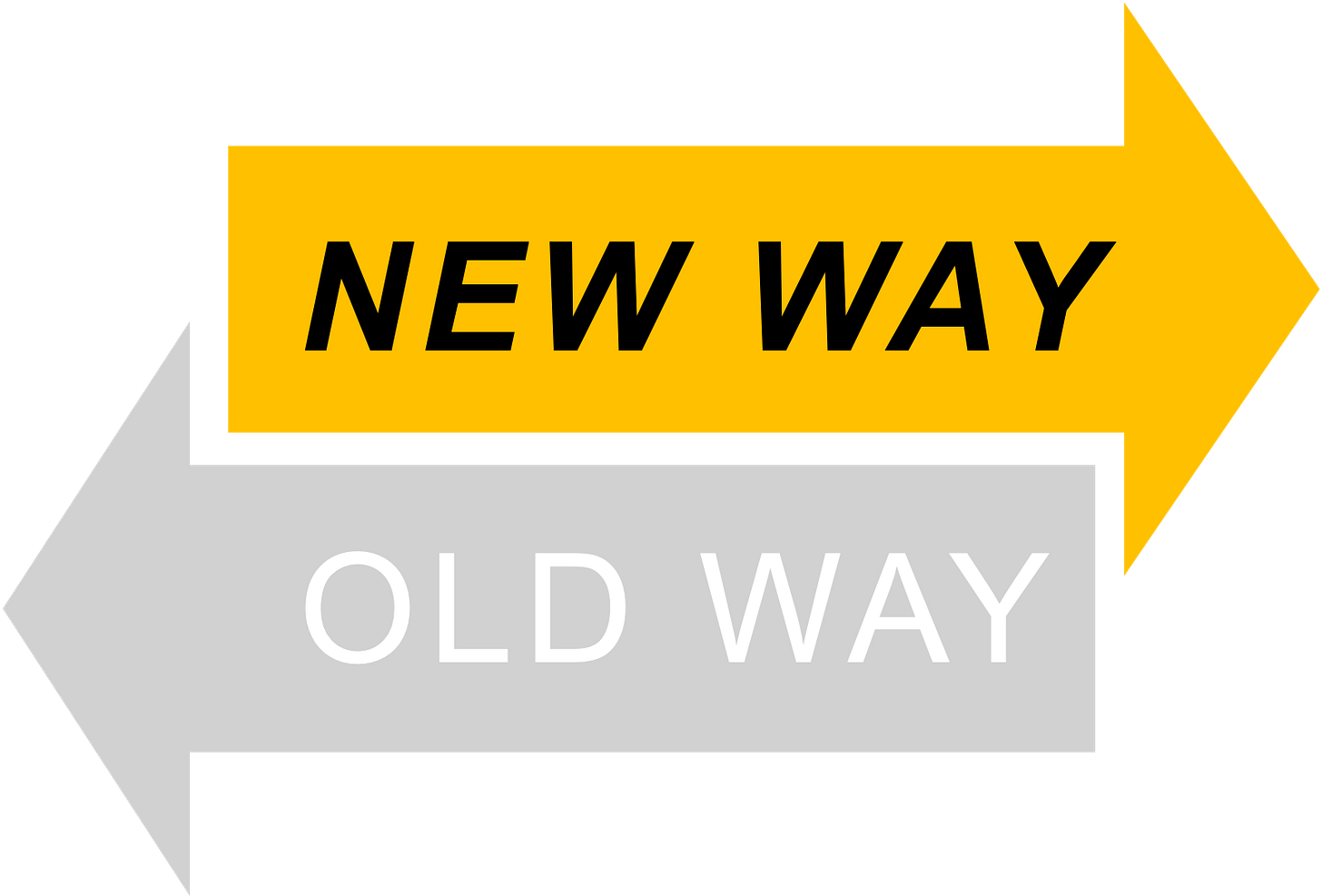A 2024 Year in Review
In a challenging year, the rise of social housing and Alex's baby are two things that give us hope.
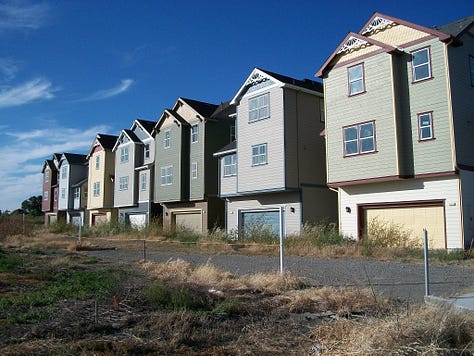



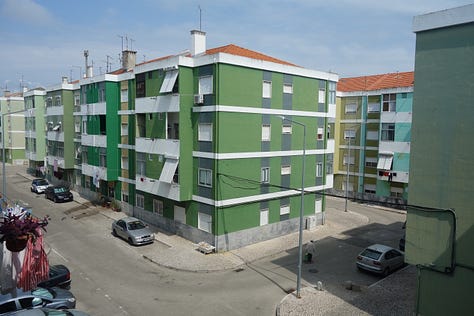

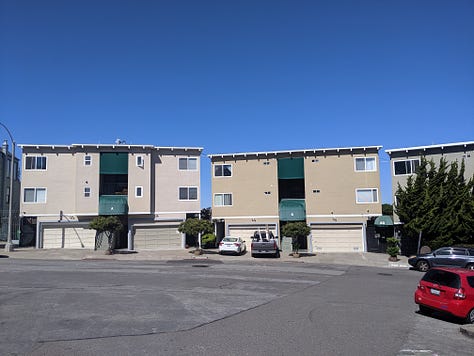


We’re not gonna lie - it was a tough year for housing. High interest rates make everything too hard and too expensive. While the overall politics of housing are getting better in terms of production, the Grants’ Pass decision and populist anger on so many issues make our overall politics worse. In California, Prop 5 lost, rent control became a ballot issue when it should not have been, and the dream of a historic BAHFA bond remained a dream. Too many people live outside, too many people are getting evicted, too many people struggle to buy or keep their homes. The debacle that was the 2024 presidential election will reverberate in so many ways throughout our housing system, especially for those struggling the most. And I still see so many in housing resistant to change, even as they demand it from others or the system in general. There are a lot of housers who reach for the spotlight when they should be buying a mirror.
Nevertheless, we remain hopeful. Homeownership and reimagined housing finance as central issue for housing change are growing as ideas in both the Housing Justice and YIMBY wings of our party, and leaders in both camps are increasingly overcoming years of distrust to extend olive branches and discuss alliances that could actually win real change. This was the year social housing went mainstream - see more below - and can hopefully grow as an action area and unifying force for years to come.
On the more personal side, our clients give us hope, and help sustain our work and what is now firmly a PodStack. People come up to say how much they like the podcast, which fills us both with joy. And we even managed to get a few good things out into the housing universe, mostly thanks to the guests that make Housing After Dark worth listening to or reading. This year we released:
10 podcast episodes, ranging from the insurance crisis to SB4 implementation to philanthropy and real vs. perceived risk of investments to social housing. Housing After Dark grew it’s audience and surpassed 5000 downloads, and we’re super grateful. Help us find sponsors to keep it going!
3 written posts, including our hopes and dreams for 2024 to why (corporate) ownership matters to why middle income housing is a racial justice issue. The latter was part of a report we did for our client California Community Builders (CCB), and we’re proud of this brave work that shows just how large BIPOC middle-income California has become.
A report with the San Francisco Federal Reserve Bank on homeownership beyond single family houses. This work is also an extension of our work with CCB, especially our 2023 report on Multifamily Homeownership.
1 baby, code named “Mr. Nuggets”, who is exceptionally cute, and our reason for not writing very much!
ICYMI Housing After Dark Episodes
We were proud to launch Season 2 of Housing After Dark. Thanks to all the spectacular guests who helped us dive into new and existing areas. Tough to choose, but here are three conversations we were really happy to have, in part because these guests helped us dive into new areas — the role of philanthropy, homelessness, and the importance of homeownership.
Housing After Dark Episode 15: Ruby Bolaria Shifrin on Philanthropy's Role in Fighting our Housing Crisis
Philanthropy isn't going to solve all our problems but it is absolutely critical to push us forward for two big reasons. First, philanthropy has the role to convene housers across entrenched silos and sectors, whether that be advocates, academia, practitioners, developers, the banks or more. Second, philanthropy can provide the R&D capital necessary to help institutions, like banks or government, know the difference between the real and perceived risk of investments. This is one of the few sectors where failure is a good sign.
Housing After Dark Episode 14: Paul Fordham on Homelessness, the Unhoused, and Funding
Housers need to see the full truth of the housing space, which includes bridging the homelessness / housing divide. Paul speaks powerfully and compellingly about his journey to homeless services, what supportive housing really means, and how to meet those experiencing homelessness where they’re at.
Housing After Dark Episode 13: Nikki Beasley on the Importance of Homeownership
There are two challenges 1) we lack a diversity of housing options despite the diversity of people and need and 2) we don't often give people a choice in the type of housing they have access to, especially when we talk about homeownership. Nikki Beasley talks powerfully about the importance of homeownership and how we need to be giving people the information and the resources they need to be able to make real choices.
And here’s the full list of this year’s content:

Housing After Dark Episode 16: Shanti Singh on Prop 33, Social Housing and Productive Disagreement
ICYMI Posts
We’ve been slower on the writing this year, but many of our posts remain as relevant today as they were a year ago. A few we’re especially proud of:
Building New Towns in California
“...the region also needs to be able to build large housing projects, and even consider New Towns for a growing region.” - Road to Resegregation (2018), p.278
New towns remain a good idea, just not this way, and not on this land. How not to do it, and how to do it differently.
Housing's Missing Mirror
We in the housing industry tend to point fingers at each other. The blame game is easy, but it doesn't work and often makes things worse. If housers want to lead us to a better housed future, we need to be willing to look in the mirror. A more self-reflecting housing community can build more trust and accomplish so much more.
Housing Tenure 101: A Where We Go From Here Explainer
Tenure is one of the most important and most ignored parts of housing. It's both the glue that binds you to your home and has important ties to vulnerability. Tenure isn’t just wonky rules that can or cannot protect you from losing your home. It also represents the most creative possibilities we have when it comes to changing our housing system.
And here’s the full list of this year’s content:
Words Worth Reading + Spaces We’re Watching
Words Worth Reading
Shelterforce article on low-income homeowners struggling in the shadows. We’ve written a lot about how ownership matters, and there is no path to a better housing system that doesn’t involve helping lower-income folks own homes safely and securely.
The New York Times’ piece on social housing in Vienna. The growth of social housing as an idea is one of the bright spots of 2024. We first wrote about it in 2022 when we launched this Substack, then wrote about it again in 2023, and released a podcast episode that featured current BCHS Secretary Tomiquia Moss during a webinar run by SJSU. We’ll keep at it in 2025, as we follow the SB555 plan and other efforts aimed at rethinking how the public sector engages in housing production. It’s great to see AOC and many other leaders lean into some form of social housing - now the question becomes how to channel these energies and differing visions into a both/and/yes/more vision that actually has a chance to become reality. If your vision of social housing doesn’t include different strokes for different folks, and can’t reach the full range of housing needs from <200% of AMI, it won’t win and it won’t work.
I’m a sucker for any housing crisis big picture pieces, even if they often drive me crazy. Extra points for one’s that make a list - this Marketplace piece on 5 strategies is worth looking at, especially because it talks about capital gains tax reforms to encourage ownership transitions. Even better is the National Housing Crisis Task Force, which actually includes industry change and not just policy change.
This Terner Center piece is a great run down of California housing laws that will go into effect in 2025 if you’re looking for a succinct overview. Shoutout to Muhammad Alameldin, friend and guest on the inaugural episode of Housing After Dark. If we had a houser of the year award, he’d be in the running.
Spaces We’re Watching
The future of old homes. It’s not just that we struggle to build, we struggle to maintain. If you’ve lived in a home, you’ve lived in a home that is falling apart unless someone is actively maintaining it.
The future of encampments: On June 28, 2024 the U.S. Supreme Court voted 6-3 in City of Grants Pass v. Johnson that local governments can enforce camping regulations against people experiencing homelessness without violating the Eighth Amendment. Our response to homelessness cannot be criminalization, and we’re already seeing the ramifications of this ruling, with Newsom’s July Executive Order to remove people from encampments. Does the state and do jurisdictions have plans on where the unhoused will go after? How jurisdictions, the state, advocate, and frankly the electorate, move forward will have long reaching impacts on homeless policy and response in the state.
The future of vouchers: A key piece of the future of housing is greater direct assistance for low income people. Housing costs are too high and incomes are too low to make the whole system pencil. Some good people at HUD and elsewhere have been taking a page from the guaranteed income and cash transfer world to experiment with new forms of rental subsidy. You’re seeing action at the local level on rental subsidies, including here in the Bay Area. This remains a critical space, even if the possibilities of new Housing Choice Vouchers (Section 8) is a long shot right now.
The future of bond financing for housing: This is about more than BAHFA or Prop 5. We have serious challenges with existing bond programs that were set up to fail (or worse, generate fees not housing). But we also have a ton of possibilities to reform the municipal bond system to make radical housing change possible, and advance racial justice and all manners of quality housing goals.
The future of housing insurance. We covered this on a great podcast episode earlier in the year, and while there have been a few bright spots, the situation on the ground keeps becoming more concerning. As much as I don’t want to learn about insurance, seems like we all have too.
The future of housing as healthcare. Following the 2023 release of the Biden Administration and CMS’ guidance on leveraging Medicaid to support social determinants of health (including housing), we’ve seen a number of states (California included) take advantage. This Vox article goes into more detail. We’re watching this space as we gear up for changes in how housing is funded, how we can be creative in leveraging other funding sources, and how 2025 will shake out.
The future of HUD, Fannie, Freddie and federal housing policy after January 20, 2025. I won’t bother you with hot takes or predictions, but like most good housers, we’re not going anywhere and are resting up and getting ready in every sense of the term. I hope you are too.
A 2025 Teaser
We will be back to writing in 2025, starting off with a special Hopes and Dreams for California Housing in 2025 that focuses on what it means to be a California houser staring down four years of a hostile administration in Washington. We’ll get back to long over due posts on transforming the housing economy, and keep nudging housers to see the whole system.
Thanks for riding with us through 2024, and we’ll see you on the flip side.
Alex & Tina




